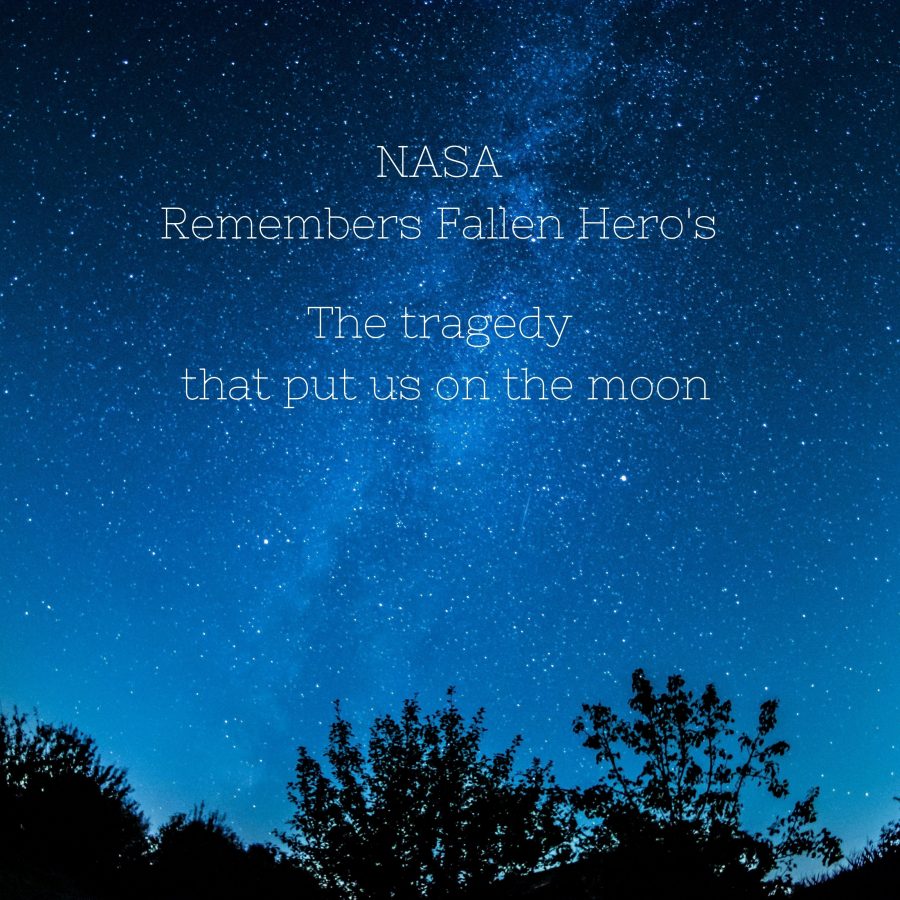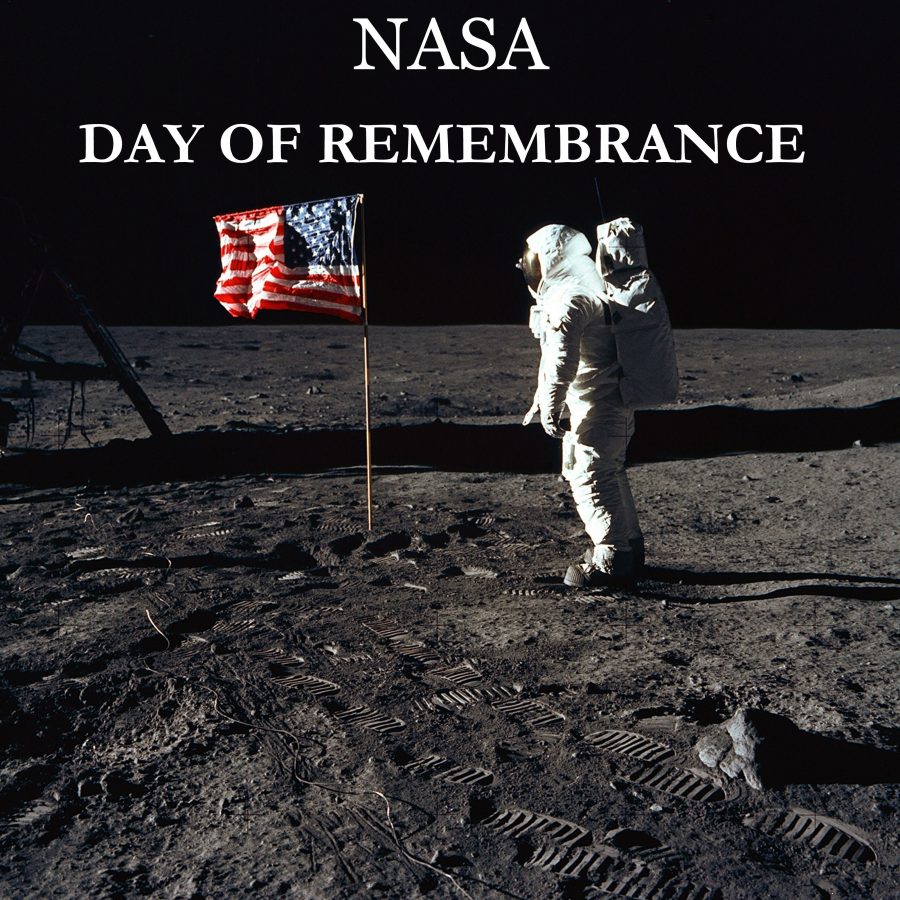Imagine what the world would have been without space travel and space exploration. Science itself wouldn’t have gone as far as it did. But do we remember the grave sacrifices of those who went to make these discoveries? Can you envisage how difficult it must have been, leaving everything behind just because of their goal?
Despite knowing the risks, these astronauts were resiliently tenacious till the end, most people would have probably given up. What do you think must have driven them this far?
Determination!
Join me as we unravel who these great heroes and heroines were, how they have managed to impact Science and the world at large and ways to unlock the power of determination.
NASA Day of Remembrance

The month of January marks the celebration of the great heroes and heroines who laid down their lives to expose us to the intricacies of space, which leads us today to a world of endless opportunities and possibilities. These great men and women knowing fully well of the risks and dangers involved remained adamant and determined to achieve their dream.

All these of course would not have been possible without the adequate support, direction and funding of a reliable organisation which was and remains NASA-National Aeronautics and Space Administration which started on October 1, 1958. It is an organisation responsible for space travel and the scientific study of space for the U.S. government.
Technological advancement in other countries has become a major concern to the United States government. Lagging would put America not only at a technical disadvantage but also an economic and perhaps even military one.
President Dwight D. Eisenhower signed into law the National Aeronautics and Space Act the previous July, creating NASA to lead America’s civilian space program in response to Soviet advances in space exploration.
President John F. Kennedy, the 35th President of the United States of America, (1961-1963) rigorously moved the motion and challenged the nation to reach the impossible and land a man on the moon before the end of 1970. He, however, was not able to live to fulfil this goal and died by assassination in Dallas, Texas on Nov. 22, 1963. He is known to be the youngest president to die. Afterwards came President Lyndon Ben Johnson- November 22, 1963, and with him board together with NASA, they were able to achieve President J.F Kennedy’s dream- to land a man on the moon.
Who were the fallen heroes and heroines of NASA?
Apollo 1

According to Wikipedia, Apollo 1, initially designated AS-204, was planned to be the first crewed mission of the Apollo program. This was America’s first attempt to land a man on the Moon. It was planned to launch on February 21, 1967, as the first low Earth orbital test of the Apollo command and service module.
Unfortunately, the mission never flew; a cabin fire during a launch rehearsal test at Cape Kennedy Air Force Station Launch Complex 34 on January 27 killed all three crew members—Command Pilot Gus Grissom, Senior Pilot Ed White, and Pilot Roger B. Chaffee—and destroyed the command module (CM). The name Apollo 1, chosen by the crew, was made official by NASA in their honour after the fire.
“If we die, we want people to accept it-we are in a risky business…The conquest of space is worth the risk of life.” –Gus Grissom, 1967
STS-51-L
STS-51-L was the 25th mission of NASA’s Space Shuttle program and the final flight of Space Shuttle Challenger Francis R(Dick) Scobee, Michael J.Smith, Judith A. Resnik, Ronald E. McNair, Allison S. Onizuka, Gregory B. Jarvis, S. Christa MacAuliffe. On January 28, 1986, the Space Shuttle Challenger broke apart 73 seconds into its flight, killing all seven crew members aboard. The spacecraft disintegrated 46,000 feet (14 km) above the Atlantic Ocean, off the coast of Cape Canaveral, Florida, at 11:39 a.m. EST (16:39 UTC).
The primary goal of the mission was to launch the second Tracking and Data Relay Satellite (TDRS-B).
It was the first fatal accident involving an American spacecraft while in flight.
Space Shuttle Columbia
On Saturday, February 1, 2003, Space Shuttle Columbia disintegrated as it reentered the atmosphere over Texas and Louisiana, killing all seven astronauts on board.
Commander Rick Husband, Pilot William C.MaCool, Mission Specialist Michael P. Anderson, Mission Specialist Kalpana Chawla, Mission Specialist David M. Brown, Mission Specialist Laurel Clark and Payload Specialist Ilan Ramond.
It was the second Space Shuttle mission to end in disaster, after the loss of Challenger and its crew in 1986.
If there is anything that draws these three events together, it is the power of resilience and determination. The United States at the time it wanted to start these “impossible discoveries” didn’t fully have the withal to make these projects happen because it was something no one had ever done. These heroes and heroines were well aware of this but stood and faced it gallantly with tenacity. This is indeed something worth emulating.
The Contribution of NASA’s Fallen Heroes to the World

The fallen heroes of NASA left a lasting impact on the world, and some of their significant contributions include:
- Safety Improvements: The tragedies, such as the Space Shuttle Challenger and Columbia disasters, prompted a thorough review of safety protocols and procedures in space exploration projects. The focus on safety not only improved NASA but also the entire Space Industry Practices. It progressively paved the way for innovation and competitiveness, where organisations prioritised the well-being of astronauts and the success of every mission. This of course fostered global collaborations and partnerships with other countries. Their sacrifices led to crucial enhancements in spacecraft design and operational safety, ensuring a more secure environment for future missions.
- Technological Advancement: Investigations into the causes of space accidents have led to advancements in space technology. The lessons learned from these incidents have contributed to the development of more robust spacecraft and improved engineering practices, benefiting future space exploration endeavours.
- Humanizing Space Exploration: The losses of these heroes humanised space exploration, emphasising the personal sacrifices and risks involved. This perspective has fostered a greater appreciation for the individuals who dedicate their lives to advancing scientific knowledge and exploration beyond Earth.
- .Private Sector Engagement: The tragedies highlighted the need for diverse and resilient space transportation options. This realisation has spurred increased involvement of private companies in the space industry, leading to a more competitive landscape with companies like SpaceX, Blue Origin, and others contributing to advancements in space capabilities.
- Emphasis on Continuous Improvement: The losses of the fallen heroes instilled a culture of continuous improvement within NASA and the broader space community. This commitment to learning from past mistakes and evolving practices has fostered a competitive environment where organisations strive to outperform their previous achievements and overcome challenges.
- Determination and Resilience: The fallen heroes exemplified resilience and determination in the face of adversity. Their courage in pursuing the exploration of space, despite the risks, continues to inspire individuals globally to persevere in the face of challenges and setbacks. As interesting as this whole thing sounds, it isn’t easy. Resilience and determination are innate capacities of humans- everyone has them.
The only difference between those who achieve their dreams and those who do not is development, which is caused by a growth mindset. Yes, you have the skills it takes to become a lawyer, an artist, a public speaker, etc, but are you willing to put in the work? Has it gotten to the point where you’ve said- no matter what happens I can do it? How can we unlock this power that lies within us?
How to Unlock The Power of Determination

Some of the ways to unlock your determination is as follows:
1. Determination Starts With A Goal: if you want to develop determination, set clear, solid and SMART goals. After learning how to set effective goals, have plans to achieve them, work towards them and have a backup plan. Let’s take the case of Hilda Baci, the former holder of the Guinness World Record for marathon cooking 93 hours 11 mins.
In 2018, she applied to break the record for the longest cooking Marathon but was turned down. Imagine how she must have felt but she didn’t let it kill her passion or drive, she forged ahead into other businesses that aligned with her goal. Five years later, now six, she took another trial and finally got what she wanted. Hard work pays.
A person who has a set goal manages his time. You can’t find them just anywhere, why? It’s because they know the importance of time.
Time Management is an important asset that we all have but most of us fail to maximise our time properly.
2. Add Commitment to the mix: When you are finally done having a solid goal, the next step is to be committed to it. Commitment however comes naturally. A person can only be committed to that which he loves and cherishes. You give your time to what you most prioritise, no matter the cost, it’s that simple. Once there is commitment, the universe starts to work for you.
Commitment is also a strong indicator of self-discipline, resilience and persistence. A person who is committed strives to do his best outside his comfort zone. He isn’t just committed to others but also, to himself.
“Until one is committed there is hesitancy…The moment one commits oneself, then providence moves too. All sorts of things occur to help one that would never otherwise have occurred.” – William Hutchison Murray.
3. Add Focus: You have to keep your eyes on the game by avoiding any form of distraction. Focus acts as a guiding force that aligns your actions with your goals. The Fallen Heroes of NASA remained focused on their goal. By doing this, they paved the way for the world to know more about space and for this, their names will forever be remembered.
It helps you navigate through distractions, overcome problems and help you achieve your goal, bringing satisfaction.
Conclusion
As we remember the fallen heroes and heroines of NASA, let us also bear in mind the never-unyielding spirit of resilience and determination that they possessed.
We all have dreams and aspirations but at the end of the day, what makes the difference is determination. Dreams don’t become reality through magic, it takes a lot of hard work, focus and persistence.
These fallen Heroes that we so greatly revere knew what that meant. And yes, they died achieving their dreams but today, their names are still being mentioned as heroes, men and women of great courage and resilience.
Let’s shun procrastination, fear, and negative thoughts this year. They are killers of dreams.
“Success is not final, failure is not fatal. It is the courage to continue those counts.” – William Churchill.


